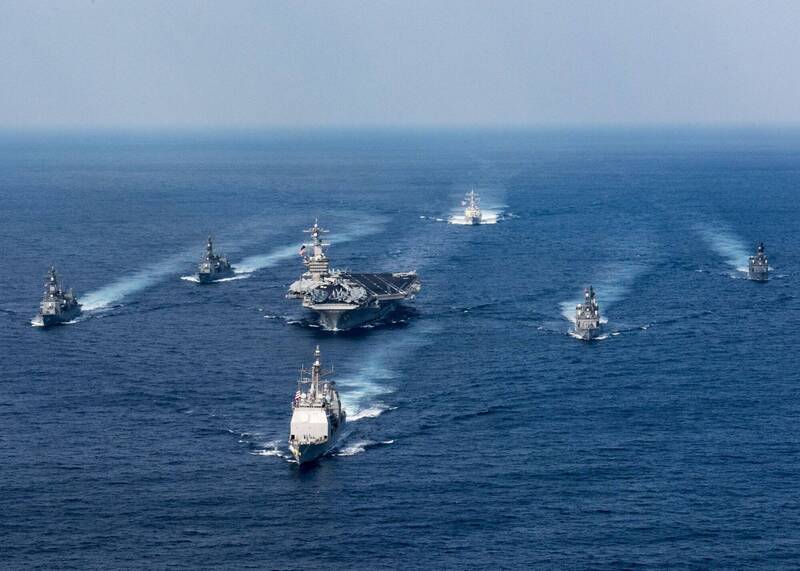The US think tank has pushed China's attack on Taiwan in 2026 24 times, and concluded that the People's Liberation Army is likely to end in failure.
Schematic diagram of the U.S. Pacific Fleet.
(AFP)
[Instant News/Comprehensive Report] The Center for Strategic and International Studies (CSIS), a Washington think tank in the United States, conducted 24 war games for China's attack on Taiwan in 2026. It is one of the largest cross-strait war simulations in history. The failure ended, and the United States, China, and Taiwan all paid a heavy price in this war.
According to a "CNN" report, CSIS stated that in most of the military pushes, the U.S. Navy lost 2 aircraft carriers and 10 to 20 large warships, and about 3,200 U.S. troops were killed in the three-week battle.
Japan, which is involved, may lose more than 100 fighter jets and 26 warships, and the US military bases stationed in Japan will also be attacked by China.
Please read on...
On the other hand, the CCP army also suffered heavy losses. The core composition of the amphibious force will be destroyed. About 10,000 soldiers were killed, 155 fighter jets and 138 major warships were lost, and tens of thousands of soldiers were captured.
Taiwan’s army estimates that there will be 3,500 casualties, and the navy’s 4 destroyers and 22 frigates, a total of 26 ships, were all sunk. Although the Taiwan army will not be defeated, its combat power will be severely hit, and Taiwan’s power and infrastructure will also be destroyed. .
CSIS pointed out that if the US-Taiwan military wants to prevent China from occupying Taiwan, it must meet four conditions. They are Taiwan's ground forces must be able to attack the PLA's beachheads, the US military will be able to use Japanese bases for operations, and the US military must deploy long-range anti-ship Missiles destroy Chinese warships, and the U.S. military must intervene immediately.
In addition, CSIS directly pointed out that Taiwan does not have a "Ukrainian model" because once a war breaks out, no troops or supplies can be delivered to Taiwan. This is different from Ukraine, which can receive a steady stream of supplies from the United States and Western allies.
Mark Cancian, one of the directors of the Bingtui project, said, "No matter what the Taiwanese want to fight with, they must have it at the beginning of the war."
CSIS suggested that if the United States wants to succeed in the Taiwan Strait conflict, it must take action as soon as possible, including strengthening the US military bases in Japan and Guam to resist Chinese missile attacks, transforming the navy into smaller, more survivable warships, and prioritizing Consider submarine and bomber forces, deploy cheaper fighter jets and arm Taiwan with more affordable weapons, after all expensive warships are unlikely to survive the first wave of Chinese strikes.
CSIS emphasizes that the military promotion does not imply that a war across the Taiwan Strait is inevitable. China may adopt strategies of diplomatic isolation, gray zone oppression (such as military aircraft circumventing Taiwan, information warfare, fake news, etc.) or economic suppression of Taiwan.
On the other hand, even if the pawn tweets indicate that the attacker should be unsuccessful, war can still happen.
